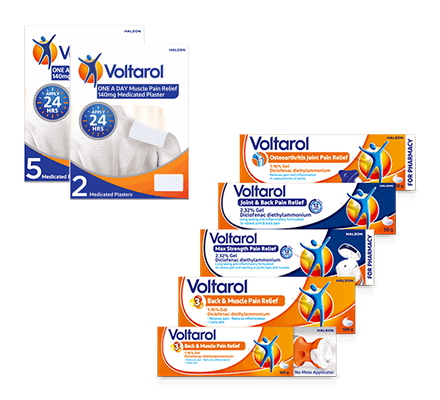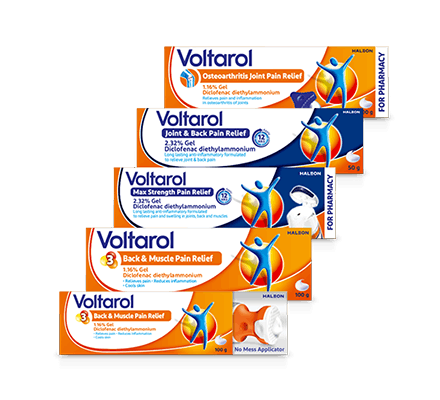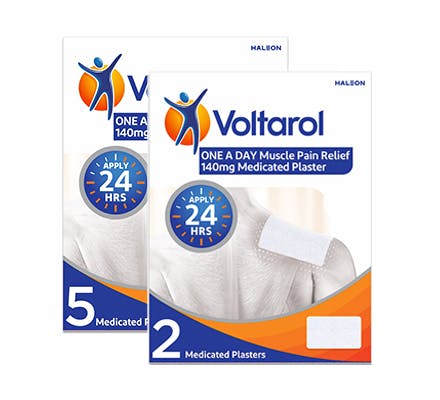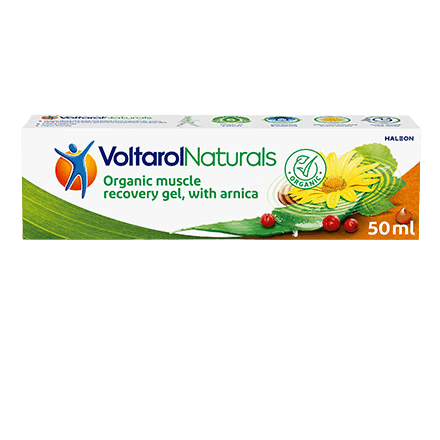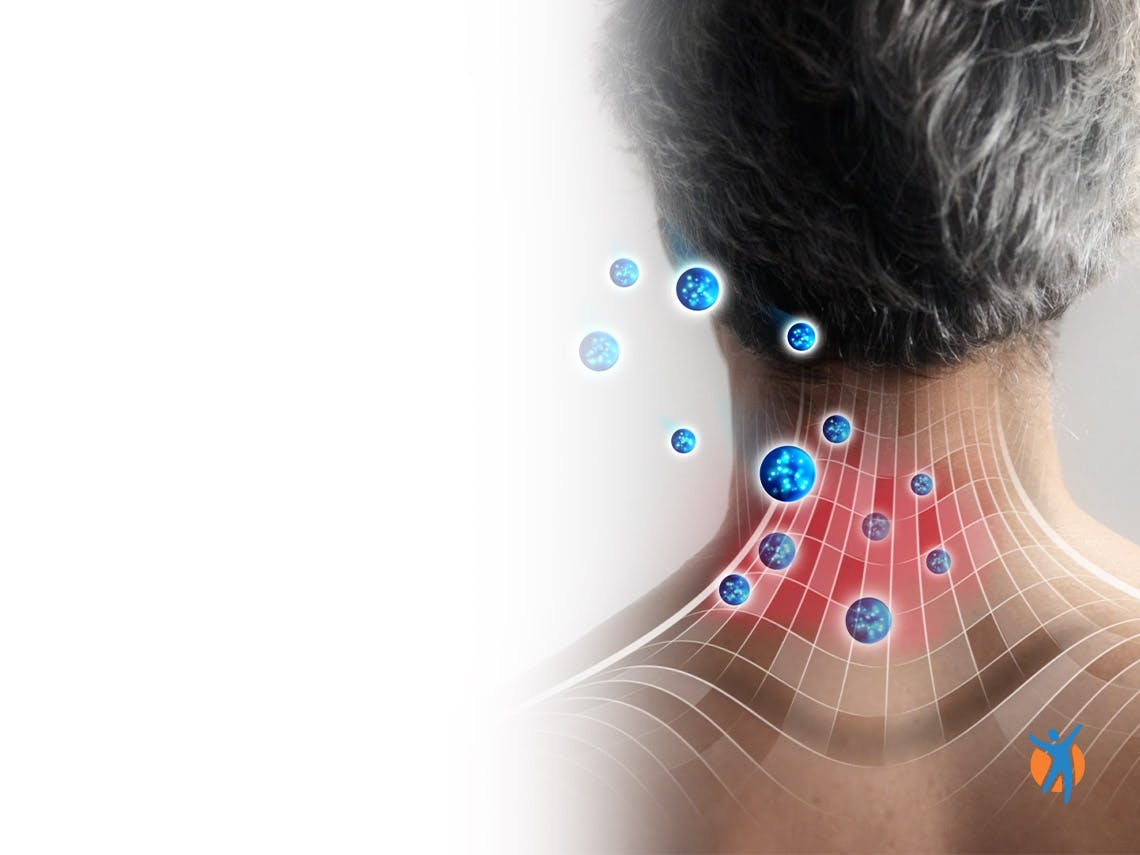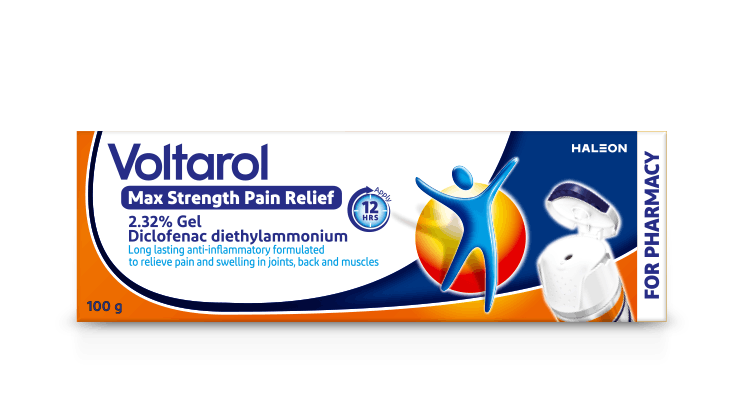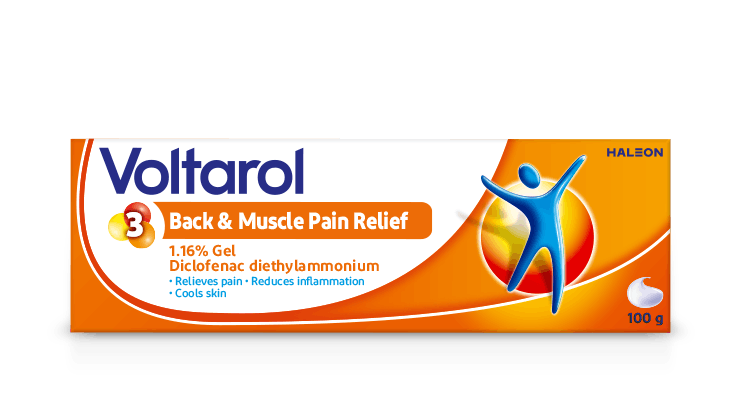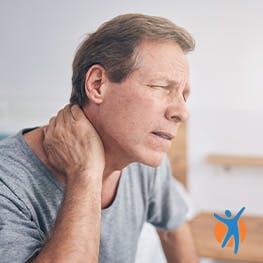
SHARE THIS ARTICLE:
Neck pain is, well, a pain in the neck! (Sorry we went there… it was too easy. We had to!) Whether it’s from sleeping in a funny position, previous injury, or even simply moving your neck ‘just so’ (we hate when that happens!), a crick in your neck can really dampen your day, to say the least. Here’s a little on why... neck pain occurs and what you can do for some neck pain relief when it does - because moving about your day should put a smile on your face, not a wince of pain.
Neck pain can affect anyone and most people experience it from time to time, often from poor posture or overuse. However, sometimes neck pain is caused by injury, such as whiplash, a fall, or a contact sports collision. If that’s the case, medical attention may be needed.

Symptoms and signs of neck pain can include:
- Difficulty moving your neck, or a stiff neck
- Muscle tightness or spasms
- Sharp pain
- General soreness, achy pain
- Headache
- Pain that increases when holding your head in one position, as in when driving or working at a computer
If your neck pain accompanies an injury, fall, or accident, seek medical attention immediately. It may be the sign of damage that requires medical treatment.
Neck pain can feel much scarier than it actually is. Most neck pain resolves itself on its own with the help of at-home remedies. However, if you experience any of the following symptoms, seeing a doctor is in order:
- Pain that persists for days without any improvement
- Severe headache
- Numbness or tingling
- Trouble gripping objects
- Pain that spreads down both of your arms and legs
Causes of neck pain
Essentially the top of our spine (and our spinal cord), our necks are made up of seven vertebrae that make up what’s called the cervical spine. (That’s why sometimes neck pain is called cervical pain). Acting as cushioning between these vertebrae are discs made out of cartilage. Nerves then extend throughout the neck, while muscles, tendons, and ligaments allow us to swivel our neck to move and support our head. Pain in the neck can be caused by strain or injury to any of these elements that make up the neck.
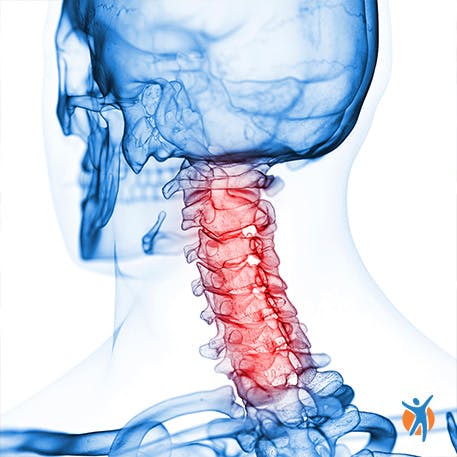
Depending on the cause, neck pain can be acute or chronic – in other words, short-lived and quickly resolved, or lasting and recurring.
Sometimes emotional distress can cause neck pain as well. Anxiety, stress, and even depression can cause the neck muscles to tense up, which can escalate into neck pain.

Some acute neck pain causes include:
- Poor posture
- Sleeping in an awkward position
- Repetitive motions
- Cervical radiculopathy, or a pinched nerve
- Carrying a heavy bag on your shoulder
- Trauma or injury
- Non-specific causes
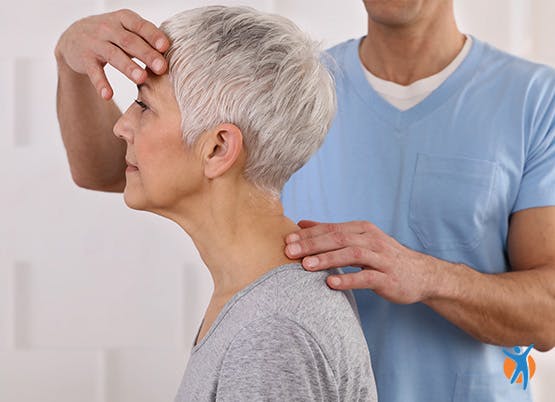
Some chronic neck pain causes include:
- Cervical osteoarthritis, also called cervical spondylosis
or neck arthritis, occurs from wear and tear of your neck’s muscles and bones.
- Cervical herniated disc (also known as a slipped disc)
- Disease
Some diseases such as meningitis or cancer can cause neck pain.
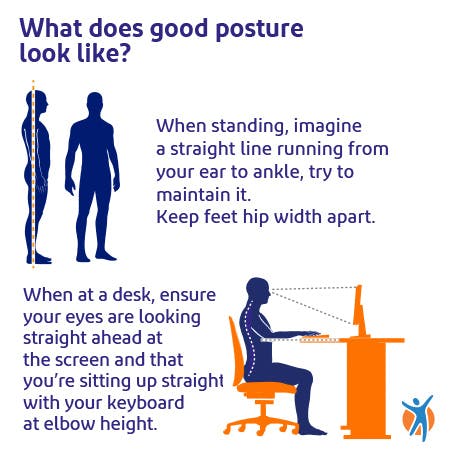
How to ease or avoid neck pain
- applying heat using heating pads, baths, or warm, moist towels
- massaging and manipulating the neck
- stretching the neck
- reducing stress
- applying ice to the injured area
- practicing good posture when sitting, standing, and walking
- sleeping in a position that supports the neck
- performing exercises to help keep the neck strong
Explore Voltarol products for pain relief

SHARE THIS ARTICLE:
Health, wellness & your pain
Pain is rarely just physical nor is it always solved by taking medicine alone. Voltarol is your ally in helping you take more control of your pain journey, from the way to sleep, to what you eat, mental wellbeing and complementary pain relief therapies.


